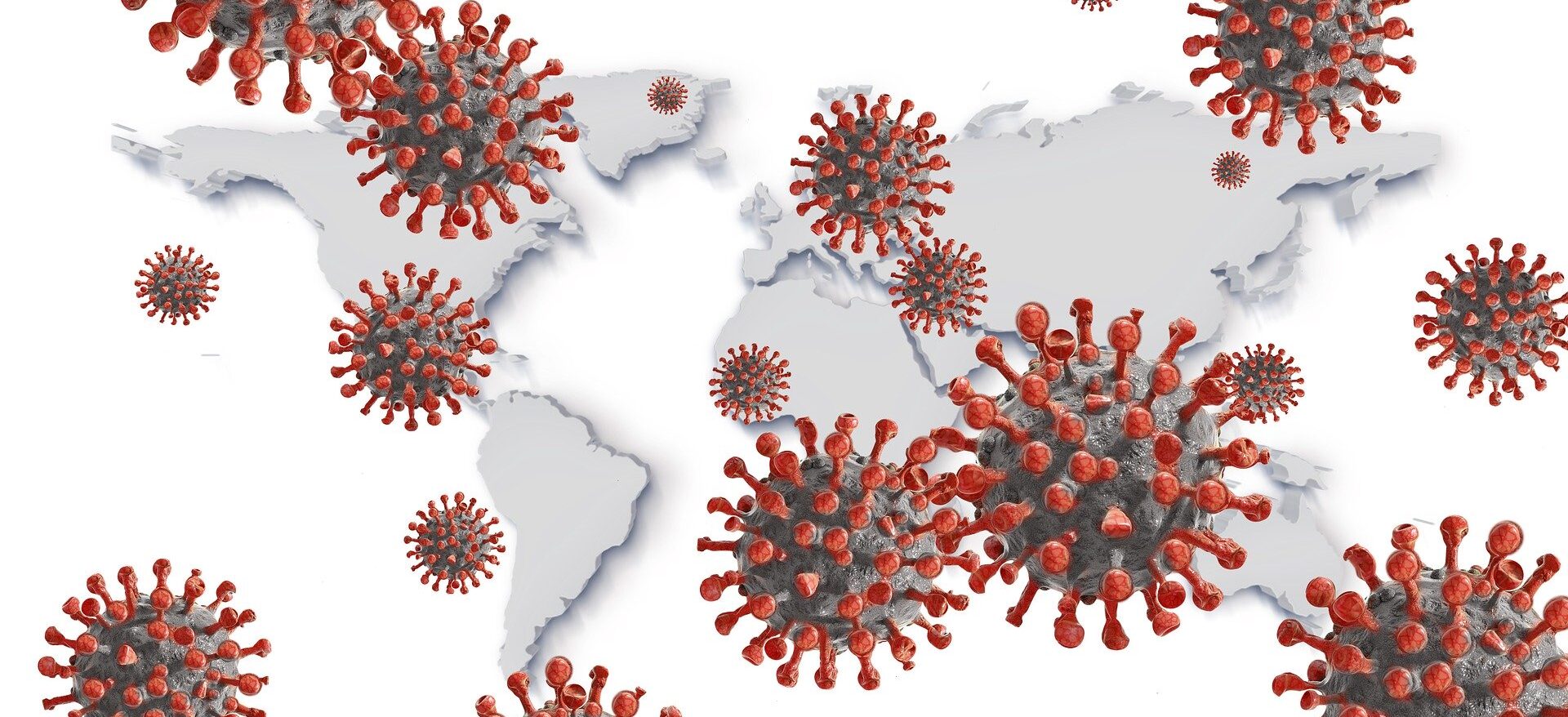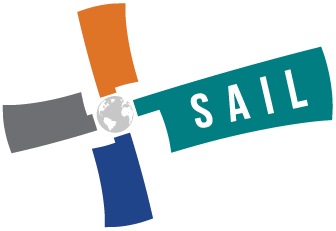
COVID-19
COVID-19 has put the world upside down and is affecting everyone. However, developing and emerging countries are confronted with other pressing situations on top of COVID-19 including a food and economic crisis. The International Higher Educational Institutions are all contributing to this crisis in different ways collecting information but also giving information and lessons learned about the health and food-security status in the different countries.
ISS
ISS faculty and PhD researchers are setting up new projects and producing blog posts, articles and videos about the social, economic and political repercussions of the COVID-19 pandemic, both in the Netherlands and abroad. In line with our expertise in global development and social justice and our critical approach, we critically examine the effects of the pandemic on vulnerable communities worldwide.
- Local Engagement Facility (LEF) – ISS is funding four projects focusing on the impact of Covid-19 and the measures taken on marginalized or (often) overlooked communities within the city of The Hague. The projects will research the experiences of (un)documented migrants, asylum seekers and refugees, stories of solidarity, and opportunities for linking international development with local solidarity within the context of Covid-19.
- Corona file – ISS is collating blog posts, articles and videos about COVID repercussions worldwide in its Corona file: https://www.iss.nl/en/corona-file.
A selection covering diverse thematic angles:- Blog on Corona measures in Ethiopia: https://www.iss.nl/en/news/injera-and-bunna-time-corona-containing-spread-covid-19-ethiopia
- Blog post from the Centre for Frugal Innovation in Africa (CFIA) on examples of frugal innovation during the COVID-19 crisis: https://www.iss.nl/en/news/frugal-innovation-during-covid-19-crisis-examples-east-africa
- Blog tackling COVID-19 in humanitarian crises: https://issblog.nl/covid-19-rethinking-how-to-respond-to-covid-19-in-places-where-humanitarian-crises-intersect-by-rodrigo-mena/
- Blog on the situation of precarious workers in the Dutch agricultural sector: https://www.iss.nl/en/news/revaluing-essential-workers
- Blog on the importance of keeping an eye on democracy: https://www.iss.nl/en/news/another-top-priority-times-crisis-keep-democratic-life-and-running
- Blog on COVID-19 in relation to climate change politics: https://issblog.nl/covid-19-lessons-from-the-covid-19-crisis-for-climate-change-politics-by-murat-arsel/
- Blog post in considerations, techniques and risks of remote research in times of COVID-19: https://www.iss.nl/en/news/remote-research-times-covid-19-considerations-techniques-and-risks
KIT
Covid-19 affected every aspect of our lives and highlighted just how fragile many of our most important systems are. These impacts lie at the intersection of our work to build strong health systems, push towards gender equality, and to make food systems more inclusive and sustainable. Over the course of the year, we adapted our work and started new initiatives in response to the crisis:
- Our education courses have just started to return to in-person classes (complying with the Covid-19 guidelines)
- Last month KIT held its first in-person training since the start of the pandemic in Sierra Leone – https://www.kit.nl/tailor-made-training-on-management-and-leadership/ with all participants vaccinated through Covax
- KIT Intercultural Professionals has made a new online learning platform: academy.kit.nl
- Share-Net International (the Knowledge Platform for Sexual and Reproductive Health and Rights) has set up international Communities of Practice on COVID-19, SRHR and Gender Equality. This platform is hosted at KIT https://www.kit.nl/project/share-net-international-the-knowledge-platform-for-sexual-and-reproductive-health-and-rights/ and links to resources around Covid-19 and SRHR https://share-net.nl/category/resources/covid-19/
- KIT launched the Dutch Global Health Alliance in partnership with AMREF/Cordaid/KNCV/Wemos https://dutchglobalhealthalliance.org/ – to lobby the Dutch government in the run up to the elections and to work on more concerted global health action.
- Several publications, papers and blogs about the effects of the pandemic have been published including:
- Agricultural Cooperatives and COVID-19 in Southeast Africa. The Role of Managerial Capital for Rural Resilience https://www.kit.nl/publication/agricultural-cooperatives-and-covid-19-in-southeast-africa-the-role-of-managerial-capital-for-rural-resilience/
- A gendered aquaculture value chain analysis in northwestern Bangladesh https://www.kit.nl/publication/a-gendered-aquaculture-value-chain-analysis-in-northwestern-bangladesh/
IHE Delft
In response to the letter of Minister Kaag of 8 April, the Institute is investigating how we can use available funding towards activities directly responding to the COVID-19 crisis and its impacts. DUPC2 refers to our ongoing programmatic funding by DGISIGG:
- Pathogen removal in water supply systems in small towns (related to DUPC 2 SMALL) (Maria Kennedy)
- Measuring Covid in sewage (related to our SCARCE project in Jordan) (Maria Kennedy, Peter van der Steen)
- A global study aimed at understanding how drinking water utilities that have Water Safety Plans in place are coping with the COVID crisis (with NWSC Kampala) (Giuliana Ferrero)
- A waste water based early warning COVID surveillance network in Kampala together with KWR (Medema), University of Barcelona, Makerere University (CEDAT, Veterinary Institute), NWSC, KCCA, and the MoWE (a proposal submitted to EDCTPfor co-fundingunder DUPC2) (Jan Willem)
- Online course on Public and Environmental Health in Emergencies, addressing disease outbreaks (outbreak cycle and control, include surveillance, hot spots), hygiene promotion, community engagement, and behaviour change (new UNICEF and IHE collaborationunderDUPC2) (Tineke Hooijmans)
- COVID-19 relevant activity related to Water, Peace and Security (WPS) partnership: https://waterpeacesecurity.org/info/blog-04-01-2020-coronavirus-pandemic(Susanne Schmeier)
- IHE Delft is part of a teamworking on a WaterTagging project which has discovered that iron oxide nanoparticles coated with silica can be used as a component of COVID19 test kits. The team is led by researchers from NTNU in Norway together with Trondheim hospital. The lab at NTNU’s (Norwegian University of Science and Technology) https://norwegianscitechnews.com/2020/04/from-thousands-of-tiny-magnetic-balls-to-150000-covid-19-tests-per-week/
- Has COVID-19 compounded the risk to the people affected by floods? Article by Prof. Chris Zevenbergen with colleagues from Myanmar and Bangladesh https://bit.ly/3jdsVh5
- Small-scale agriculture in crisis due to Covid-19 pandemic, blog written by various IHE Delft staff https://bit.ly/2EiYwzi
MSM
MSM’s Food Security Initiative is born out of the extensive partnerships between MSM and its project partners in Africa, Asia and South America. With the Food Security Initiative MSM brings insights on COVID-19’s impact on food security from the countries (and rural areas) where we operate. The updates will inform on the effects on small- scale and commercial farmers, traders, processors, input suppliers, financial institutions, and will provide useful insights for policy makers, donors, NGO’s and scientists. In doing so, MSM can indicate potential changes in food flows in regions around the world and support decision making on how to counterbalance negative impacts of COVID-19 measures. Supported by data flows and local partners, MSM will facilitate multi-actor and cross-sector collaboration through platforms for action.
- A Food Security Initiative update on governmental financial stimulus packages in emerging markets: https://www.msm.nl/news-events-and-blogs/covid-19-updates/financial-stimulus-packages-in-emerging-markets
- A Food Security Initiative update on the impact school closures have on food security: https://www.msm.nl/news-events-and-blogs/covid-19-updates/the-impact-of-school-closures-on-food-security
- Online webinar on capacity building for project partners to learn about monitoring & evaluation, crisis communication and triple helix platforms: https://www.msm.nl/news-events-and-blogs/news/capacity-building-for-your-organization
IHS
- The IHS COVID-19 resource hub has been up and running for more than a year as part of IHS’ effort to try and contribute to helping countries in the South by sharing information, experiences, and knowledge on Covid-19. It is regularly updated on a weekly basis. There are two sections of the hub that have consolidated much of the information that has been made available on cities and COVID-19, namely
- the Journal Articles section which includes updates of journal articles that have been made freely available to all by the publishers in response to the pandemic; and
- the Reports and Working Papers section that has an extensive listing (with links) to various reports and working papers regarding COVID-19 in the urban context from a variety of organizations.
- Furthermore, the IHS COVID-19 resource hub also has a list of Websites and blogposts which also includes news items.
- The questionnaire linked to the IHS Resource hub led to the following article becoming available online on 12 January 2021:
- Fransen, Jan; Ochoa Peralta, Daniela; Vanelli, Francesca; Edelenbos, Jurian and Beatriz, Calzada Olvera (2021) The emergence of urban community resilience initiatives during the COVID-19 pandemic : an international exploratory study, The European Journal of Development Research.
- Work is ongoing to follow-up on this article through a further research study on community resilience in informal settlements in Nairobi during Covid-19, that is being undertaken by Vital Cities and Citizens, Centre of Frugal Innovation in Africa, IHS and the Ghetto Foundation.
- Jan Fransen has been working with the Rotterdam City Council and Erasmus University taskforce: ‘Learning and Transforming’. The aim of the taskforce is to improve the ability of Rotterdam to resist a next phase of the pandemic, recover more quickly and upscale and mainstream lessons learned and innovations.
- Jan Fransen and team have been working on a study on social and organizational resilience in Rotterdam, by Vital Cities and Citizens, IHS and City Council of Rotterdam. Funded by the Trust Fund of EUR.
- Jan Fransen and team have given presentations to the EU, Partos (association of Dutch international NGO’s) and the city council of Rotterdam on community resilience.
- Lecturing on resilience during Covid-19.
- Finally, Nigel Browne, one of IHS’ Information Managers recorded his experiences during the first six months of lockdown in a book chapter entitled: The IHS Library and its response to the COVID-19 Pandemic.
ASCL
Researchers of the African Studies Centre Leiden and members of their Community have started to write blogs about the spread of COVID-19 through Africa, and the impact of the pandemic.
The INCLUDE knowledge platform has a dedicated COVID-19 web-page to share knowledge on how the coronavirus pandemic and related interventions are likely to affect development programmes and the livelihoods of people in Africa.
ITC
On the research website of University of Twente, you can find the scientific papers related to COVID-19. Below are some examples of initiatives and research we do at the University of Twente, Faculty of Geo-Information Science of Earth Observation (ITC), surrounding the COVID-19 pandemic.
- Cartographic means have been developed to map the ongoing COVID-19 pandemic. Indeed, pandemics pose particular challenges to their visual representation, because they happen across large ranges of scales: local infections with a global spread; short-term decisions by governments and institutions with long-term effects; and diverse effects of the disease on many aspects of our lives. We discuss these challenges and have developed ways to approach these, among others by cartographic storytelling. This facilitates a better communication of the current situation and the effect of corresponding measures.
Contact: Franz-Benjamin Mocnik, Paulo Raposo, Wim Feringa, Menno-Jan Kraak, Barend Köbben
Paper: http://doi.org/10.1080/17445647.2020.1776646
- COVID-19 – modelling approaches: We are integrating risk perception and coping appraisal at the governmental and personal level into a geographically explicit Agent-Based Model, simulating the spread of Covid while considering different intervention strategies. The model has been tested on data for The Netherlands and Iraq, and outcomes were compared with actual COVID-19 data. Three different strategies were tested (Route Map, Economical Scenario and Age-specific Interventions). We are now extending the model to drive agent behaviour via Machine Learning to create more intelligent agents.
Contact: Ellen-Wien Augustijn, Carmen Anthonj, Shaheen Abdulkareem, Raul Zurita-Milla
Paper: https://med-geo.de/wp-content/uploads/2020/12/201201_NL-AK-4-2020.pdf
- A dashboard has been developed that provides a global overview of the number of COVID-19 cases including confirmed, dead and recovered cases (if the data is available) for each individual country. The dashboard is made interactive to allow for comparison of data and curves for different countries. Different modelling approaches are compared to provide predictive models for the spread of the disease and to develop scenarios that visualize the effect of counter measures that have been taken in different countries (such as the lock-down scenario as introduced in the Netherlands).
Contact: Franz-Benjamin Mocnik
Some other initiatives at the University of Twente, Faculty ITC, related to COVID-19:
- A project on government risk perceptions and COVID-19 modelling in the Netherlands by GIMA student Astrid Herwig. Contact: Ellen-Wien Augustijn and Carmen Anthonj.
- A project on COVID-19 where we are examining spatial and temporal variations in risks throughout the Netherlands. Contact: Justine Blanford.
- A project on understanding links between WASH, water utilities, COVID-19 and geography with focus on Latin America and the Caribbean, and Brazil and Peru in specific. This is a consulting project for the World Bank. Contact: Carmen Anthonj.
- A project on COVID-19 and WASH in schools. Implications, challenges and solutions. Contact: Carmen Anthonj.
- A project on spatial and temporal trends of corona virus in wastewater as they relate to other COVID-19-related epidemiological indicators in the Netherlands. Contact: Sherif Amer and Carmen Anthonj.
- Global Conversations in GiScience Education which led to a workshop, the results are included on this website. Contact: Justine Blanford.
Image by Gerd Altman from Pixabay
